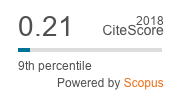Efeitos da História de Reforçamento Sobre a Variabilidade Comportamental
Mots-clés :
Variabilidade comportamental, Aprendizagem de seqüências, História de reforçamentoRésumé
O objetivo desse estudo foi investigar se a variabilidade comportamental pode ser função da história de reforçamento.
Ratos foram submetidos a reforçamento contingente à emissão de seqüências de quatro respostas de pressão à barra (barra
direita -De barra esquerda - E). Na fase CRF, reforçava-se toda seqüência; nas demais fases, o reforçamento foi intermitente,
sendo contingente à variabilidade da seqüência (VAR) ou independente desta (ACO). A variabilidade foi considerada em
relação à distribuição de respostas D ou E, dentro da seqüência. Metade dos sujeitos foi exposta a essas contingências na
ordem CRF-VAR-CRF-ACO-CRF-VAR (grupo I) e os demais a CRF-ACO-CRF-VAR-CRF-ACO (grupo II). Os resultados
mostraram que os índices de variação foram sempre altos nas fases VAR. Nas fases CRF e ACO, o comportamento foi pouco
variável quando essas contingências foram implantadas antes de VAR e intermediários quando estabelecidas após VAR. Esses
resultados sugerem que a variabilidade comportamental é função da história de reforçamento.
Téléchargements
Références
extinction, and reconditioning. Journal of Experimental
Psychology, 42, 273-281.
Attneave, F. (1959). Applications of information theory to psychology:
A summary of basic concepts, methods and results. New
York: Holt-Dryden Book.
Barba, L.S. (1997). Variabilidade comportamental aprendida.
Dissertação de Mestrado, Universidade de São Paulo, São Paulo.
Boren, J.J., Moerschbaecher, J.M. & Whyte, A.A. (1978). Variability
of response location on fixed-ratio and fixed-interval
schedules of reinforcement. Journal of the Experimental Analysis
of Behavior, 30, 63-67.
Catania, C.A. (1994). Learning. Englewood Cliffs: Prentice Hall.
Cohen, L., Neuringer, A. & Rhodes, D. (1990). Effects of ethanol
on reinforced variations and repetitions by rats under a multiple
schedule. Journal of the Experimental Analysis of Behavior,
54, 1-12.
Eckerman, D.A. & Lanson, R.N. (1969). Variability of response
location for pigeons responding under continuous reinforcement,
intermittent reinforcement, and extinction. Journal of the
Experimental Analysis of Behavior, 12, 73-80.
Herrnstein, R.J. (1961). Stereotypy and intermittent reinforcement.
Science 133, 2067-2069.
Herrnstein, R.J. (1970). On the law of effect. Journal of the Experimental
Analysis of Behavior, 76, 49-69.
Hunziker, M.H.L., Saldana, L. & Neuringer, A. (1996). Behavioral
variability in SHR and WKY rats as a function of rearing environment
and reinforcement contingency. Journal of Experimental
Analysis of Behavior, 65(1), 129-144.
Lachter, G.D. & Corey, J.R. (1982). Variability of the duration of
an operant. Behavior Analysis Newsletters, 2, 97-102.
Machado, A. (1989). Operant conditioning of behavior variability
using a percentile reinforcement schedule. Journal of the Experimental
Analysis of Behavior, 52, 155-166.
Machado, A. (1993). Learning variable and stereotypical sequences
of responses: Some data and a new model. Behavioral Processes,
30, 103-130.
Machado, A. (1997). Increasing the variability of response sequences
in pigeons by adjusting the frequency of switching
between two keys. Journal of the Experimental Analysis of
Behavior, 68, 1-25.
McCray, C.L. & Harper, R.S. (1962). Some relationships of schedules
of reinforcement to variability of responses. Journal of
Comparative and Physiological Psychology, 55, 19-21.
Mook, D.M. & Neuringer, A. (1994). Different effects of amphetamine
on reinforcement variations versus repetitions in spontaneously
hypertensive rats (SHR). Physiology and Behavior,
56, 939-944.
Morgan, L. & Neuringer, A. (1990). Behavioral variability as a
function of response topography and reinforcement contingency.
Animal Learning and Behavior, 18, 257-263.
Neuringer, A. (1986). Can people behave "randomly"?: The role of
feedback. Journal of Experimental Psychology: General, 115,
62-75.
Neuringer, A. (1991). Operant variability and repetition as functions
of interesponse time. Journal of Experimental Psychology:
Animal Behavior Processes, 17, 3-12.
Neuringer, A. (1992). Choosing to vary and repeat. Psychological
Science, 3, 246-250.
Neuringer, A. (1993). Reinforced variation and selection. Animal
Learning and Behavior, 21(2), 83-91.
Page, S. & Neuringer, A. (1985). Variability is an operant. Journal
of Experimental Psychology: Animal Behavior Processes, 11,
429-452.
Reid, A. (1994). Learning new response sequences. Behavioral
Processes, 32, 147-162.
Sagvolden, Т., Metzger, M., Schiorbeck, H., Rugland, A.,
Spinnange, I. & Sagvolden, G. (1992). The spontaneously hypertensive
rat (SHR) as an animal model of childhood hyperactivity
(ADHD): Changed reactivity to reinforcers and psychomotor
stimulants. Behavioral and Neural Biology, 58, 103-
112.
Schoenfeld, W.N. (1968). On the difference in resistence to extinction
following regular and periodic reinforcement. Journal of
the Experimental Analysis of Behavior, 11, 259-261.
Schwartz, B. (1982). Failure to produce response variability with
reinforcement. Journal of the Experimental Analysis of Behavior,
37, 171-181.
Skinner, B.F. (1948). "Superstition" in pigeon. Journal of the Experimental
Psychology, 38, 168-172.
Skinner, B.F. (1981). Selection by consequences. Science, 213,501-
504.
Stokes, P. (1995). Learned variability. Animal Learning and Behavior,
23, 164-176.
Stokes, P. & Balsam, P.D. (1991). Effects of reinforcing pre-selected
approximations on the topography of the rats bar press.
Journal of the Experimental Analysis of Behavior, 55, 213-
231.



